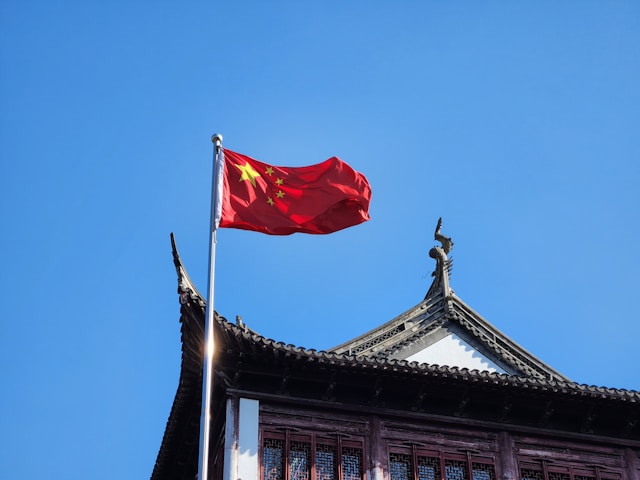
Apart from pleadings and evidence, foreign companies in Chinese courts need to complete a series of formalities, which can sometimes be somewhat cumbersome. Therefore, it is necessary to spare sufficient time to get ready.
I. Certificates of Subject Qualification: ‘who am I’ and ‘who represents me’
To participate in China’s civil litigation, the certificates of subject qualification that foreign companies need to submit include:
1. business license, or the certificate document on good standing issued by enterprise registration authority;
2. documents certifying the status of the legal representative or the authorized representative (e.g. the company‘s bylaws, resolution of the board of directors, etc.);
3. documents certifying the identity (“identity certificate”) of the legal representative or the authorized representative, including his/her name and position;
4. passport or other identity documents of the legal representative or the authorized representative.
The above documents mainly concern ‘legal representative’ (法定代表人) and ‘authorized representative’(授权代表人), so it is necessary to clarify these two concepts. Chinese companies or foreign companies all need a natural person, on behalf of the company, to sign the litigation documents and to participate in litigation. Each Chinese company has a registered ‘legal representative’, who is entitled to represent the company to participate in litigation without the need for additional authorization.
If a foreign company has a legal representative, he or she may also participate in the litigation on behalf of the company. In order to certify his or her status, the foreign company generally needs to submit its bylaws or other similar documents. As for the foreign company without a legal representative, it is required to specifically empower an ‘authorized representative’ to participate in the lawsuit. In this respect, the foreign company needs to submit a related board resolution made pursuant to its bylaws.
It is noteworthy that Chinese courts also require an “identity certificate” of the legal representative or the authorized representative. This certificate generally contains only a single sentence, such as ‘A certain person holds a certain position in the company, he/she is also the legal representative/the authorized representative of that company’. This may seem superfluous; however, such simple, repetitive documents must not be omitted.
The above materials should be signed by the directors or the secretary of the company, etc., according to the foreign local law and the company bylaws. It should be noted that China emphasizes great importance to the seals. Therefore, it is recommended that foreign companies affix their seal on all the documents, even if these seals are merely decorative and not legally effective in their own country.
II. Power of attorney: ‘who is my lawyer’
To participate in litigation in Chinese courts, foreign companies often need to mandate Chinese lawyers, and hence need to submit the power of attorney to the courts. The power of attorney shall be signed by the legal representative or the authorized representative as described above, and preferably stamped with the company seal.
If the company does not mandate a lawyer, then the legal representative or the authorized representative need to participate in the litigation in person.
III. Notarization and authentication: ‘my instruments are authentic’
1. What are notarization and authentication
Most of the subject qualification documents and the authorization procedures of foreign companies are formed outside the territory of China. In order to confirm the authenticity of these materials, Chinese laws require that the content and the formation process of the materials be notarized by a local foreign notary (the step of “notarization”), and then be authenticated by the Chinese embassy or consulate in that country so as to certify that the signature or seal of the notary is true (the step of “authentication”). Only then can the materials become effective.
In practice, the steps of notarization and authentication are usually as below:
(1) “notarization” by a local foreign notary ;
(2) certification by foreign government officers that the identity and signature of the notary are authentic;
(3) “authentication” by the Chinese embassy or consulate in that country that the identity and signature of foreign government officers are authentic. The attached picture above is a sample of the Chinese Embassy and Consulate’s authentication documents. It only certifies that “Both the seal of the United States Department of the State, and the signature of the assistant authentication officer CHANA TURNER in the previous documents are authentic”; and the authority that issued the instruments should be responsible for their content.
If China has entered into a treaty with a certain country, then the certification process should be carried out in accordance with the treaty.
2. The content of notarization
As introduced previously, “authentication” is merely for certifying that the signature or seal of the notary is true, while “notarization” is the key to certify the authenticity of the documents. According to our experience, the notarized letter must at least indicate the following content.
(1) The business license or the certificate document on good standing: (a) the time and place of obtaining the copies; and (b) the copies are consistent with the original;
(2) The company bylaws: (a) the time and place of obtaining the copies; and (b) the copies are consistent with the original;
(3) The resolution of the board of directors: (a) the time and place of the resolution; and (b) the signature and seal are carried out under the witness of the notary, which are authentic and effective;
(4) The “identity certificate”: (a) the time and place to sign the certificate; and (b) the signature and seal are carried out under the witness of the notary, which are authentic and effective;
(5) The passport or other identity documents: the documents are authentic and effective; and
(6) The power of attorney: (a) the time and place to sign the power of attorney; and (b) the signature and seal are carried out under the witness of the notary, which are authentic and effective.
IV. Translation
All materials in foreign languages submitted to Chinese courts should be accompanied by Chinese translation (except for the cases trialed by the China International Commercial Court of the Supreme People’s Court). In practice, some Chinese courts even require that the translation be provided by the appointed translation agencies.
Photo by Jukan Tateisi(https://unsplash.com/@tateisimikito) on Unsplash
Contributors: Chenyang Zhang 张辰扬 , Yue Wu 武悦







